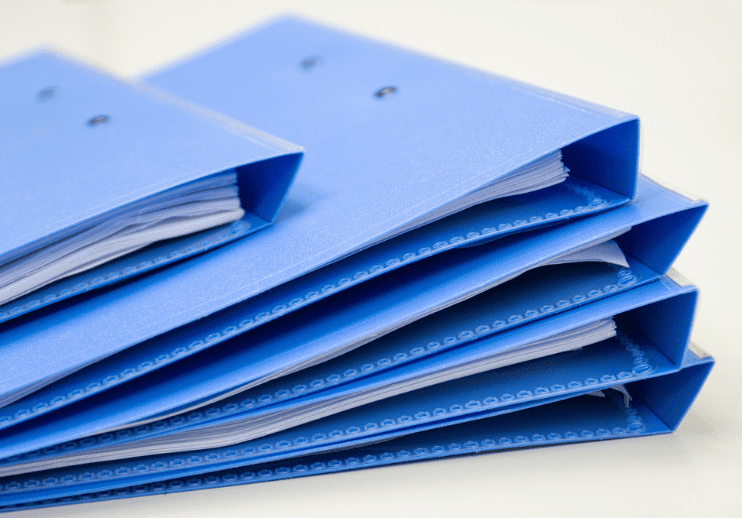Rough drafts are such an added value to attorneys, especially in fast-moving litigation. The uncertified rough draft, ideally delivered by the court reporter within hours of the proceedings, is the “unofficial” transcript provided before the final transcript is ready. These unofficial transcripts are useful to prepare for future depositions in the case, determine if additional documents are needed, and much, much more. The better the quality of the rough, the more helpful it is. What can attorneys and their teams do to receive the best possible rough draft? We asked a few of our own powerhouse court reporters for their insight, and it turns out, there are a few things that make a big difference in the quality of the rough draft. In fact, there are enough thoughtful tips from our reporters that you’ll have to check back for more! For right now, let’s look at what you can do before the deposition to position the reporter to provide a sparkling rough draft.
Request a rough draft when you schedule the deposition. Court Petros, court reporter of four years, confirms the most helpful thing an attorney can do when ordering a rough is to make the rough draft request in advance. This allows the scheduling coordinator to reserve a reporter who has the flexibility to provide the rough in the time frame requested. Equally important, advanced notice enables the court reporter to head into the deposition knowing they need a rough ready by XX date. The reporter will then prepare accordingly – rough drafts do require extra preparation.
Help your court reporter build a dictionary. Court reporters take down the record with speed and amazing apparent ease. One tool helping reporters do this is the dictionary they have built over their career, a lexicon pulled from a wide variety of case matters with medical, legal or technological terminology, and any other subject matter you can think of. But each case is unique, so to aid the reporter in building the dictionary relevant to your case, send them a list of specific names and terms.
Speaking of dictionaries, provide spellings to the court reporter. This tip was universal, with every reporter highlighting how helpful it is to receive spellings from the legal team, either prior to the deposition or on breaks. This shaves off valuable minutes spent seeking correct spellings, meaning the rough is ready that much sooner, and is that much more accurate!
Make sure the court reporter can access exhibits. If possible, make exhibits available to the court reporter prior to the deposition, whether remote or in-person. Court reporting professionals love prep materials – as veteran court reporter Lori Stokes says, the more they can prepare in advance, the better the rough will be. Having the exhibits prior to the deposition is a huge help to the court reporter, as they may also contain spellings, terms, etc. that the reporter will need for the rough.
Additional prep materials are always welcome and helpful to court reporters. If there are previous transcripts in the case, send them. Cassidy Western, court reporter of three years, specifically said the roughs she has turned around fastest were those where she had access to previous transcripts in the case. If previous depositions were covered by the same court reporting agency, they will already have those transcripts to provide to the reporter, but double check to make sure the reporter has all previous witnesses. There is no such thing as too many prep materials. This was another unanimous tip from all the reporters polled. Hint, reporters always love receiving a copy of the Notice of Deposition.
Test with the remote technician before the deposition. Yes, we keep saying it. It’s essential. You need to test your internet connection and speed, test your audio and video, microphone, etc. before you log in to take the remote deposition. Everyone participating in a remote deposition needs to be able to see and hear. The reporter who can’t hear the participant who didn’t test their connection and equipment can’t promise a highly accurate rough draft (or final). Schedule the test.
For remote depositions, log in early. It is always recommended to log in early to remote depositions. You can quickly check your connection, audio and video. Make it a habit to log in early to give the reporter your name, firm name and names of other attorneys from your firm who will be joining. If possible, providing a list of attendees from your firm before the remote deposition would be even better.
These tips outline what you can do from scheduling the deposition right up to the moment you go on the record. They set you firmly on the path to a quality rough draft from the court reporter. Next, we’ll be sharing the list of actions you can take during the deposition to secure your speedy and accurate rough draft.
Planet Depos court reporters have been covering legal proceedings in all variety of case matters, all over the globe, with a combined experience totaling centuries. From realtime to roughs, in-person or remote, the Planet Depos court reporter will make it happen. To schedule your next proceeding, contact Planet Depos at scheduling@planetdepos.com, or schedule online.
